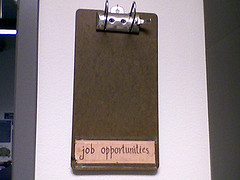
- Crown Agents are looking for senior procurement specialists for their office in Arlington VA (USA) and Malawi; procurement specialists for Mongolia and Malawi; an ARV logistics officer for Botswana; a procurement consultant for Tanzania; a supply chain operations manager for Malawi; an SCMS deputy country director for Rwanda; a logistics assistant for their office in London (UK); public procurement advisors for several countries; and a team leader for Malawi
- Save the Children is looking for an operations director, a senior procurement specialist and two roving logistics specialists for Haiti; a senior manager procurement, contracts and compliance for the West Bank/Gaza; and two senior logistics specialists to be based in Washington DC (USA).
- Maxwell Stamp is looking for a project costing and procurement specialist for Laos
- UNICEF is looking for a procurement assistant for their office in Geneva (Switzerland), a contracts officer for their office in Copenhagen (Denmark), and a supply and logistics specialist for North Korea. Sorry, no links, they still hide their vacancies behind a registration process.
- DanChurchAid is looking for a field logistics officer for Katanga (Congo DRC).
- Merlin is looking for deputy logistics coordinators for Côte d’Ivoire and Congo (DRC); a logistician for Congo (DRC); logistics managers for South Sudan, Kenya, Pakistan, Congo (DRC), and the Central African Republic; a logistics/administration officer for Gode (Ethiopia); senior logisticians for Grand Kru and Montserado (Liberia); and a surge logistics officer for South Sudan.
- JSI is looking for a deputy chief of party SCMS for Nigeria.
- Concern Worldwide is looking for a transport manager for Haiti; an assistant country director systems for Afghanistan; and a general systems manager and a logistics and administration coordinator for Zambia.
- The IRC is looking for logistics managers for Congo (DRC) and Haiti.
- The IFRC is looking for a trainee logistics delegate for based in Kuala Lumpur (Malaysia), an operation coordinator for Guatemala, a head of support services based in Panama City (Panama), a procurement delegate for Haiti, and a senior procurement officer based in Geneva (Switzerland).
- MSH are looking for a senior program associate – supply planning/MIS/M&E for Bangladesh.
[Image: Job opportunities by Coffeechica. Some rights reserved.]
{Continue Reading 0 comments }Aid and aid work, Logistics, Public health


